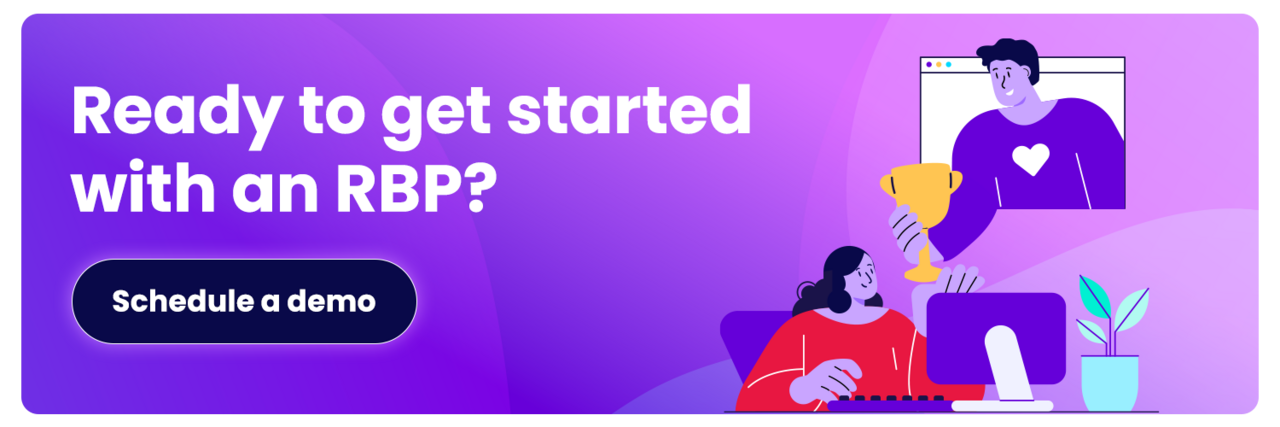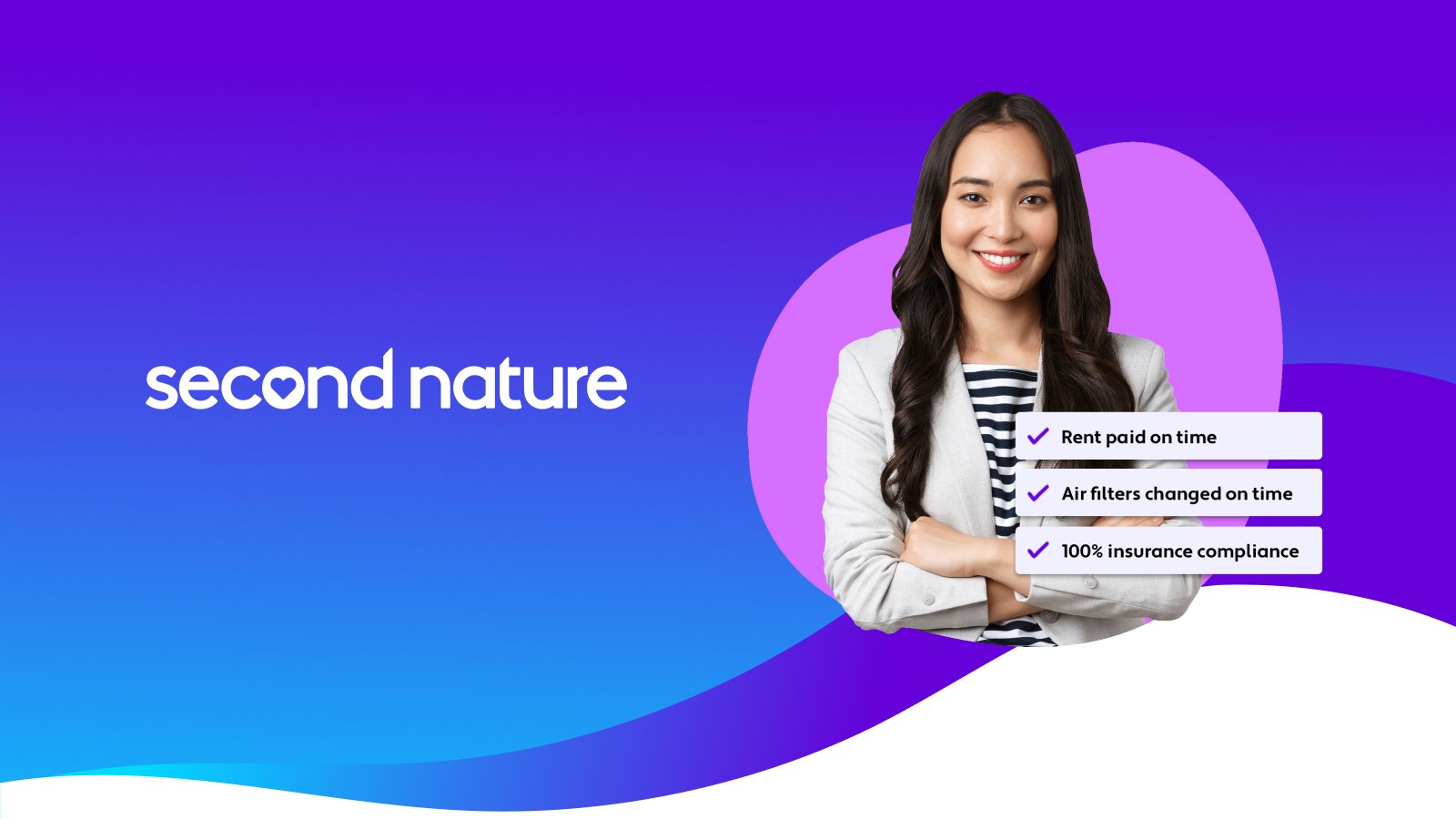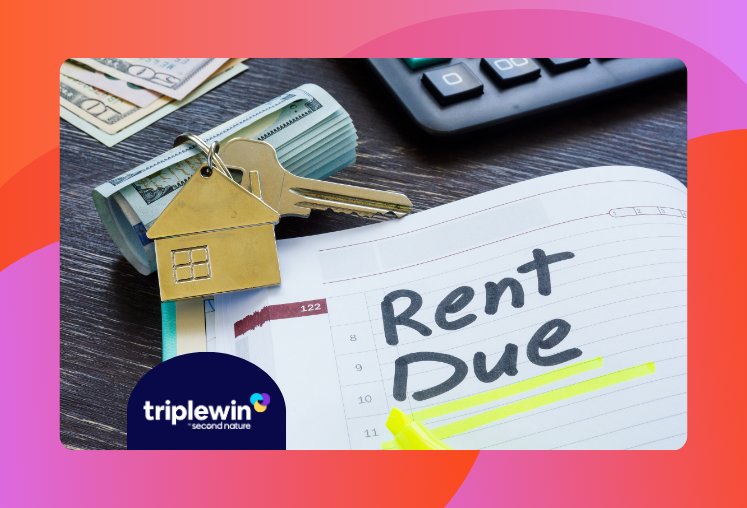What we'll cover
What is technology in property management?
How technology in property management improves daily operations
Why resident-centric property management technology matters
How to choose the right technology in property management
Comparing technology in property management tools
See how Second Nature elevates technology
FAQ
Technology in property management is changing how operators run their portfolios and how residents experience their homes.
New tools are helping property managers cut manual work and meet rising expectations. A few of these include: Digital rent collection, improved maintenance request systems, smart locks, and AI-driven analytics.
This article explores the most impactful technologies shaping property management today, especially the shift towards resident-centric platforms.
You’ll see how each innovation reduces workload, improves communication, and makes it easier to scale without adding complexity. We’ll also examine why resident-centric platforms are transforming the competitive landscape and enabling teams that make the switch to achieve stronger results.
What is technology in property management? Key tools explained
Technology in property management refers to digital tools and platforms that replace manual processes with automated systems. Examples include rent collection portals, maintenance request systems, smart locks, communication platforms, and AI analytics. These tools are also implemented to improve the resident experience, which in turn gives more back to property owners.
That can include:
- Online rent collection and accounting integrations
- Maintenance portals that track and resolve work orders
- Smart home devices like locks, thermostats, and sensors
- Automated communication tools that keep residents informed
- Analytics and AI platforms that highlight risks and opportunities
Together, these technologies reduce the back-and-forth that slows property managers down. They also give residents the transparency and convenience they now expect from every service in their lives. When payments, maintenance, and communication are handled smoothly, it creates a sense of reliability that shapes how residents view your entire operation.
How technology in property management improves daily operations
Technology in property management has moved beyond simple tools for accounting or rent collection. It now touches nearly every part of the resident and property manager experience.
Routine work like collecting payments or scheduling vendors can now run automatically, freeing managers to focus on strategy and resident relationships. At the same time, residents have come to expect that level of efficiency and visibility in their living experience, raising the bar for what “good management” looks like.
That impact shows up in several core areas where new tools are already changing the way property managers work. Let’s break down the most important ones.
Digital rent collection technology in property management
Rent collection has long been a manual, time-consuming task. With digital platforms and technology in property management, residents can pay through online portals or mobile apps, and property managers can track everything in one place.
With these tools, you can:
- Accept ACH, debit, and credit card payments
- Automate reminders and late fees
- Sync transactions directly with your accounting system
- Provide residents with instant receipts
The result comes down to a number of improvements: fewer late payments, steadier cash flow, and less time chasing checks. For residents, it’s the convenience of paying anytime, anywhere. This efficiency helps both sides feel more secure and builds a trusting relationship.
How does property maintenance technology improve workflows?
Maintenance is one of the biggest pain points for property managers and residents alike. New technology in property management makes it easier by centralizing requests, automating updates, and coordinating vendors. Instead of juggling phone calls and spreadsheets, everything lives in a single portal.
Maintenance requests make the process easier:
- Let residents submit requests with photos and details
- Track work orders from submission to completion
- Automate scheduling and vendor assignments
- Keep residents updated with status notifications
This approach reduces delays and cuts down on repeat calls. For property managers, it means less time chasing contractors. The level of transparency also creates confidence that issues will be handled quickly and reliably.
How technology improves resident communication in property management
Residents appreciate strong communication. When residents ask questions about move-in dates or maintenance requests, they usually expect an immediate answer.
Although that isn’t always possible, automating the process with new technology in property management helps the process stay intact. A missed message can delay a repair, create duplicate requests, or leave a resident unsure if their issue is being handled.
Resident communication platforms bring everything into one hub. Instead of juggling different channels, property managers and residents both know where to send and find information.
With these systems in place, you can:
- Send announcements and reminders to all residents at once
- Keep an ongoing record of conversations for each unit or building
- Share and store important documents like leases, renewal notices, or policy updates
- Give residents quick self-service options for common questions
Clear and consistent communication creates confidence that a resident’s needs won’t fall through the cracks. Property managers also feel the benefit. They keep their residents happy and can spend more time doing higher-value work.
What smart home technologies are used in property management?
Smart devices are becoming a standard expectation in many rentals. According to a survey by Rently, 54% of renters expect modern rental properties to include smart locks, smart thermostats, and security cameras.
Common examples include:
- Smart locks: Enable keyless entry, improve security, and simplify turnover between residents
- Smart thermostats: Reduce energy bills and give residents more control over comfort
- Leak and smoke sensors: Catch issues early and protect property assets
AI and analytics in property management: Proactive insights
Artificial intelligence and data analytics are helping property managers move from reactive to proactive operations. Instead of waiting for issues to appear, technology can surface insights that guide smarter decisions.
AI-driven technology in property management lets teams:
- Predict maintenance needs based on equipment data
- Spot patterns in payment behavior to reduce delinquency
- Automate repetitive tasks like scheduling or follow-ups
- Generate reports that highlight risks and opportunities
These insights save time and prevent costly mistakes. More importantly, they let you focus on building relationships with residents and investors while the system handles the routine.
Why resident-centric property management technology matters
Resident-centric technology in property management helps change how residents experience daily life in your community.
Residents feel taken care of when they can use automated tools to pay bills and request maintenance tickets. They notice the difference compared to properties still relying on paper forms or unreplied emails.
This shift matters because residents are comparing your services not only to other properties, but also to the consumer apps they use every day. They expect the same level of speed and clarity they get from banking, shopping, or food delivery. A portal that shows when a work order was received and who’s scheduled to handle it does more than cut down on phone calls. It builds confidence that issues will actually be resolved.
For property managers, that confidence translates into real outcomes:
Higher retention: Residents are more likely to renew when everyday tasks are easy and reliable.
Operational leverage: A single message or update reaches everyone instantly, saving hours of back-and-forth.
Market advantage: Properties with seamless resident tech stand out in competitive markets where amenities alone no longer tip the scale.
The move toward resident-first platforms shows that convenience and transparency are the baseline. For example, Second Nature helped the team at Hive Real Estate see 40% more on-time payments and 50% fewer maintenance requests.
How?
By giving more automation and more options to their residents. With the right, easy tools, the residents were more proactive in working with the Hive Real Estate team.
How to choose the right technology in property management
Before diving in directly to Second Nature, it’s important to take a look at what the right tool should bring to your property and your team.
There are a lot of platforms and tools available, and you want the right mix for your portfolio. The wrong choice can add complexity instead of reducing it. The right choice makes daily work easier and creates a better resident experience.
Use the following list as a quick overview of what to look for:
- Integration: Does the tool connect seamlessly with your property accounting software, CRM, or property management platform? Disconnected systems create more work, not less.
- Ease of use: If staff or residents struggle to adopt it, the benefits won’t materialize. Look for platforms with simple, intuitive interfaces.
- Resident impact: Prioritize tools that directly improve the resident experience, such as reducing wait times for maintenance or simplifying payments.
- Support and training: Technology in property management is only as good as the rollout. Choose vendors that provide strong onboarding and ongoing help.
- ROI: Ask how the tool will save time, reduce costs, or increase renewals. If the value isn’t clear, keep looking.
Evaluating technology through this lens is more likely to build a stack that works together smoothly.
Comparing technology in property management tools
Not all technology in property management delivers the same value. Core platforms cover the basics, while resident-centric layers like Second Nature extend the benefits to everyday living.
|
Focus area |
Standard property management platforms |
With Second Nature |
|
Rent collection |
Online portals and automated reminders |
Credit building to encourage on-time rent payments |
|
Maintenance |
Request tracking and vendor scheduling |
Proactive services like filter delivery reduce requests by 38% |
|
Resident communication |
Centralized messages and notifications |
Rewards programs and concierge services that build loyalty |
|
Compliance and protection |
Lease tracking and insurance requirements |
Automated renters insurance program enrollment and identity protection |
|
Resident experience |
Limited to digital access and convenience |
Tangible monthly value that keeps residents paying and staying |
Unlike standard property management platforms, Second Nature adds benefits residents actually notice — like credit reporting, filter delivery, and insurance automation. This means stronger retention, fewer service calls, and a direct ROI that other tools can’t match.
See how Second Nature elevates technology in property management
The resident experience is where growth and scalability start. If your current tools stop at accounting, payments, or basic communication, Second Nature helps you add that missing layer.
With our fully managed Resident Benefits Package, you give residents real value every month while your operations run more smoothly in the background. This creates long-term value for your properties and differentiates your property in an already competitive market.
Request a demo to see how Second Nature turns technology in property management into higher retention, lower costs, and better resident satisfaction.
FAQ
What are the most important technology tools in property management?
The most impactful tools include digital rent collection platforms, maintenance portals, resident communication apps, smart home devices, and AI-driven analytics. Together, these technologies reduce manual work and create a more transparent resident experience.
How does technology in property management help reduce costs?
Automation cuts admin time. Digital rent collection improves cash flow. Smart devices prevent costly repairs. Together, these technologies reduce inefficiencies and increase resident satisfaction.
What role does artificial intelligence play in property management technology?
AI helps property managers predict maintenance issues, identify late payment patterns, and generate insights that guide proactive decision-making. This reduces risk and ensures smoother daily operations.
Is property management technology difficult to implement?
Adoption challenges often include staff training and system integrations. Choosing user-friendly platforms with strong vendor support makes implementation smoother and accelerates ROI.
Can small and mid-size property managers benefit from technology in property management?
Yes. Digital tools scale to portfolios of any size. Even small teams can streamline rent collection, automate communication, and improve resident services without adding extra staff.
How does resident-centric technology improve retention?
When residents can pay online, track maintenance requests, and access self-service communication, they feel more confident in the property’s reliability. This convenience directly improves satisfaction and renewal rates.
What should property managers look for when selecting technology solutions?
Key factors include ease of use, integration with existing systems, direct impact on resident experience, vendor support, and clear ROI. The right mix ensures both efficiency and long-term value.
Topics:





